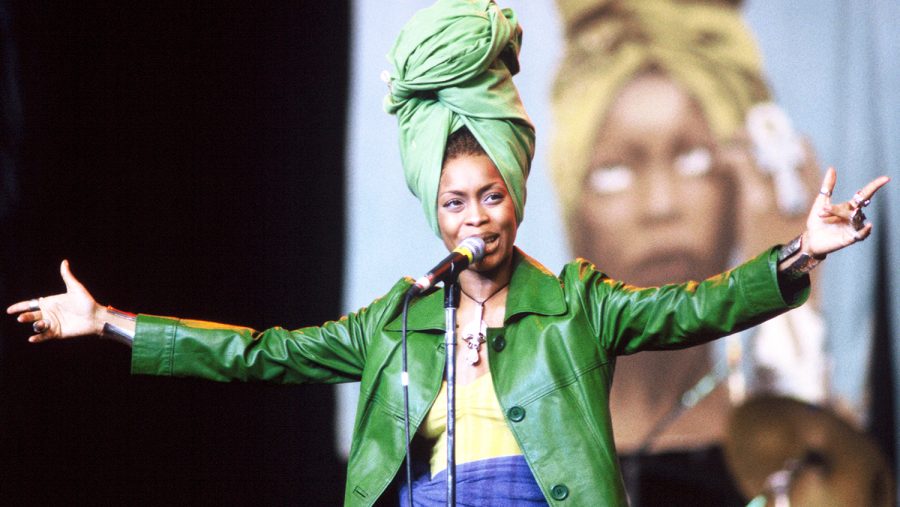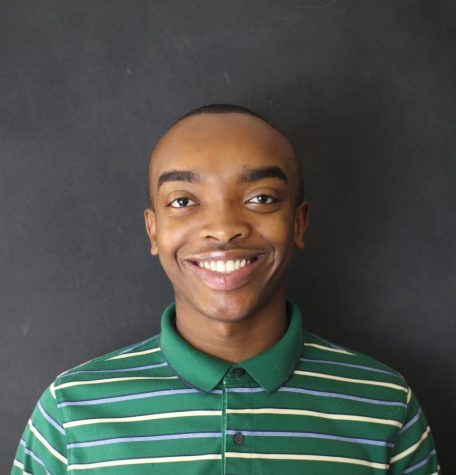‘Baduizm’ Turns 25: Erykah Badu’s Cypher Keeps Movin’
Erykah Badu performing at Shoreline Amphitheater on July 27, 1997 in Mountain View, Calif. Tim Mosenfelder/Getty Images
February 14, 2022
The world has changed a lot since Dallas-bred Erica Abi Wright graced the stage at ground zero for a worldwide epidemic of “Baduizm.” Dropping gems of knowledge over sultry, innovative beats curated by the likes of hip-hop virtuosos The Roots and newcomer JaBorn Jamal among others, Wright and her vibrant headwraps started something that could not nor would not end in ‘97.
The “Tyrone” singer seems to have always had a knack for the performing arts, spending most of her early life performing alongside her mother Kolleen Wright in various theatre productions throughout the Dallas area. By 1993, Erica Wright, up until then known as MC Apples, had dropped out of Grambling State University and became one half of a rap/hip-hop duo called Erykah Free along with her cousin Robert Bradford. Birthed out of this connection was a 19-track demo titled “Country Cousins.”
After performing at several music festivals, opening for popular acts like A Tribe Called Quest and The Roots, the two began to shop the demo around, facing rejection at nearly every corner. Former Motown president Kedar Massenburg, who had recently started his own label, Kedar Entertainment, would eventually get a hold of the demo and later offer Wright a solo recording contract as well as an opportunity to record with D’Angelo in 1996.
In October of that year, Wright, by now known as Erykah Badu, went into several studios to begin production on what would later become “Baduizm.” Armed with soul-stirring, “boom-clacking” tracks, Badu set off to create the 14-track, 58-minute LP that would go down in history as a catalyst in a new movement called Neo-Soul.
“Most of Baduizm was written before I was signed,” Badu said to Billboard in 2017. “Sonically, [the demo] was just right for me. It was the way I wanted it to sound: very raw and underproduced.”
Among the first tracks produced was “On & On,” which, without the theatrics and high energy, is as spiritual as many of our favorite gospel picks. Laced with teachings formulated by The Five Percenters, the song, produced by JaBorn Jamal in 1995, would serve as the album’s lead single and second overall track, later winning a Grammy for Best R&B Vocal Performance. The song’s distinctive opening, the eight or so “booms” before the signature “clack,” draws from a popular drumming technique called a rim shot, which was discovered by Badu in the same year.
“Rimshot” is the title of the album’s opening track, in which Badu “comes to hear the band today,” and “hear her drummer play.” The track, produced by Badu and Madukwu Chinwah, is split into an intro and outro, serving as the album’s prologue and epilogue. Here, the duo presents a unique production style that, unlike that of many successful works of the time, represents the art that can yield from simplicity.
Following “Rim Shot” and “On & On” is “Appletree,” a classic spring-cleaning anthem. That’s if your spring cleaning involves throwing out friends whose negative vibes don’t match your positive ones. Badu advises her adversaries, masked as comrades, to avoid picking from her “apple tree” if they “don’t want to be down with me.”
It’s on tracks 4 and 6, “Other Side of the Game” and “Next Lifetime,” that Badu takes a mellower approach, coming up from ground zero and pouring herself into listeners’ lives and experiences. On “Next Lifetime,” the singer is in between a rock and a hard place, attempting to quell the hearts of two distinctive lovers. After realizing the impossibility of the situation, Badu opts to see her part-time lover in another life, a hint at the singer’s belief in the spiritual principle of reincarnation. She eventually makes it clear to herself, and her millions of female listeners, that she and they may be “a lot of woman,” but, sadly, aren’t enough to “divide the pie.”
Through the years, Erykah Badu, despite receiving occasional backlash for her fearless opposition to conformity, has managed to create moments that some may find themselves resonating with more than they expected to. One of those moments is on “Other Side of the Game,” a story of drug solicitation, love, choice and consequence. In the song’s accompanying music video, Badu dons her signature headwrap, an ode to both African style and spirituality. The singer finds herself at a crossroads with her drug-dealing boyfriend, with whom she’s expecting a child. The seed has grown, and Badu is all alone. What shall she do?
“Since I got in this music … I feel like this is where I need to be right now because music is kinda sick,” Badu told Rachel Stuart of “Planet Groove” during an interview. “It’s going through a rebirth process, and I find myself being one of the midwives aiding in the rebirthing process.”
Among the non-single cuts is one of my personal favorites, track eight, titled “Certainly.” Badu’s inner Billie Holiday slowly but surely arises through the song’s slick piano rifts and hip-grinding basslines. The song’s message, however, is somewhat left in the air after its end, as listeners are left to ponder on Badu’s intention behind the lyrics: “I know you’re trying to get creative with my love. And that’s alright, but you tried to get a little tricky. Turned my back and then you slipped me a mickey.” For true “Badu stans,” this should come as no surprise, given the singer’s tendency to produce works that unfold either quickly or slowly for the listener. Ultimately, it depends on your frequency, if you know what I mean.
When asked about fans’ likening of her to the iconic jazz madame, the grand Earth Mother had this to say:
“It feels good because I love Billie Holiday, you know? I never studied jazz, but I remember it from someplace. And more than sound alike, I think we feel alike more. And because I understand people … the reason that they compare you is to understand you and get to know you better.”
Following the album’s release, the singer would embark on the “Baduizm World Tour,” making domestic stops in Boston, San Francisco, and New York City. Many of the tour’s shows were recorded and synthesized into what would become Badu’s first live album, simply titled “Live,” which was released in 1998.
“Baduizm” would thrust a 25-year-old Badu headfirst into the mainstream and receive mountains of praise from critics and fans alike, with Vibe magazine’s Karen Good declaring the record “a conduit of awakening of something dark, familiar, and long slept.” Badu, a product of the Prince, Stevie Wonder, and Curtis Mayfield era, was also praised for her uncanny ability to blend together the socially conscious themes and sounds of early 70s soul with the struggles and dilemmas of those living in the present day.
After being released, the album peaked at No. 2 on the Billboard 200 and No.1 on the Top R&B/Hip-Hop Albums and was certified triple platinum in the U.S. and Gold in the U.K. and Canada. Badu would score two number one hits (“On & On,” “Next Lifetime”). “On & On” would also become a Top 20 hit, peaking at No. 15 on the Billboard Hot 100.
In 1997, Badu received numerous accolades for the album, including two wins at the Soul Train Lady of Soul Awards. Both the album and its lead single received Grammys in 1998, with “Baduizm” winning Best R&B Album and “On & On” claiming Best Female R&B Vocal Performance.
As of 2020, the album sits at No. 89 on Rolling Stone’s “500 Greatest Albums of All Time” list, a feat that cannot come as a surprise for the little girl from the DTX.
“I’m free. I just do what I want, say what I want, say how I feel, and I don’t try to hurt nobody. I just try to make sure that I don’t compromise my art in any kind of way, and I think people respect that.”
And that we do, Ms. Badu.
Happy Birthday, Baduizm!


